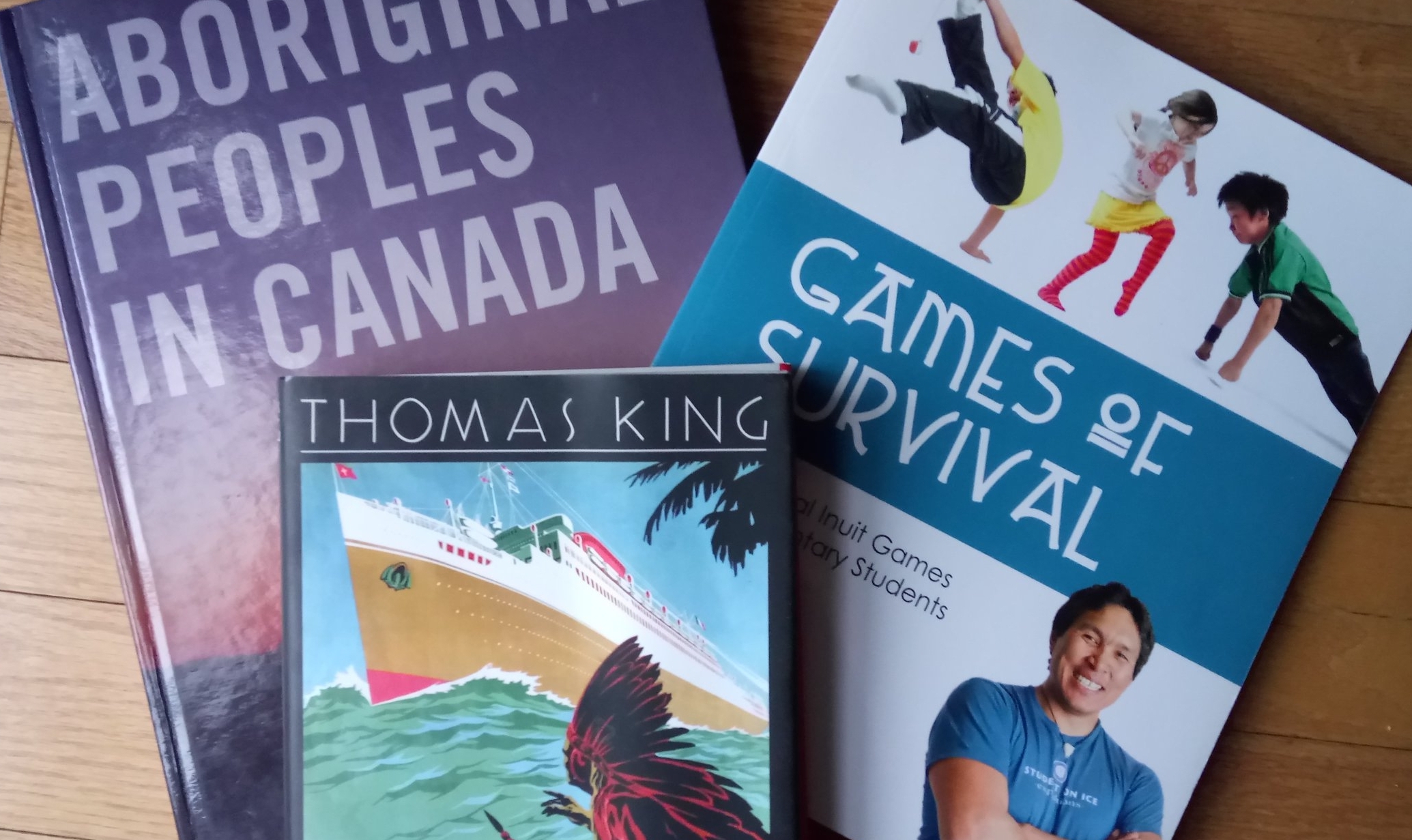Last month my friends at Natural Curiosity released the second edition of their teacher resource entitled The Importance of Indigenous Perspectives in Children's Environmental Inquiry and I'm very excited to share it with you! While designed for K to 6 classrooms, I can see the insights provided in this edition being helpful for passionate environmental and science educators in the higher grades as well. Full disclosure, I served on the Advisory Board for this new edition, and was asked to contribute an endorsement for the publication. Here's what I wrote:
Read moreListen & Learn - Winter Workshop 2018 Recap!
Thank you to everyone who joined us or expressed interest in Listen & Learn's Winter 2018 workshop! It was a dream come true to come together with educators from across the GTA to share lesson plans, questions, resources, and ideas.
I was joined by my colleagues Ryan Neepin (Fox Lake Cree Nation) and Nancy Steele, who shared lesson plans they had developed together. We also shared a delicious lunch, and facilitated the Build a Community exercise with the participants (which I've written about before).
A huge thank you to all the educators who joined us (on the first official Saturday of March Break no less!)
If you're interested in learning about upcoming workshops, contact me!
How do I give my students a full picture of Indigenous communities?
Last week during the Listen & Learn workshop, we facilitators were asked by one educator how they could bring a balance to the images that their students were developing about contemporary Indigenous communities. There are so many injustices that are being perpetrated against Indigenous folks, and I've heard that some educators are at a loss for where to find materials that highlight daily life in the community in a way that brings attention to all the amazing ways young people are thriving.
Read moreDeepening Our Relationship with the Land Acknowledgement
I am excited to share some of my learning with you about the land acknowlegement, which has been on my mind since I wrote my post addressing the question "How can I make the Land Acknowledgement meaningful?"
Last week, I attended the launch of the second edition of Natural Curiosity, which was opened by Michael White, who is Bear Clan of the Anishnaabek Nation. Michael has given me permission to reprint his words that he offered while acknowledging the land that night:
Read moreNo justice for Colten Boushie
The verdict of "not guilty" in the trial of Gerald Stanley quickly led to strong reactions in some Indigenous and non-Indigenous people across Canada about the injustice present in this verdict. Many Indigenous folks and their allies are speaking about their loss of faith in Reconciliation, instead calling for justice first for Indigenous peoples.
Your students may have questions this week, or perhaps they have not even heard of the trial. I urge you to speak to them about it either way, and to help them inquire into the various issues underlying the case including the history of colonization and racism in Canada. I am grateful to Jenny Kay Dupius, who on Twitter reminded me the importance of not forcing a conversation on Indigenous students too quickly, as many may still be processing their reactions to this. I agree - creating healthy space and respecting boundaries of Indigenous students comes first.
Dr. Dupuis also wrote about the importance of having resources handy for Indigenous students to receive support if they want it. I'm aware that readers are from many different boards, and may have different resources at their disposal - social workers, guidance counselors, mental health workers. I have not yet consulted with Indigenous colleagues on this point, but I wonder if in some cases, looking for culturally relevant supports might be one idea to think about - for instance, does your board employ Elders or traditional teachers? Does it have an Aboriginal or Indigenous Education office? Are they able to offer support? Indeed, this leads to a bigger question - what is your school or school board doing to offer supports to Indigenous students at all?
Below are links to media coverage that I have been collecting. I've also thought of some critical questions we can ask.
Critical Questions
- Whose voices are present in this piece? Whose are absent?
- What is the background of the author? How might that influence the point of view of the piece?
- What is the history of colonization in Canada?
- Where is the community Colton Boushie is from located?
- What are the past and present tensions between rural communities in Saskatchewan and First Nation communities.
- How was Boushie's family treated during the investigation? How was the Stanley family treated?
- What was the reaction from the public in Saskatchewan towards the investigation and the trial?
- What is Reconciliation?
Links to Media
A reaction in Macleans Magazine to the verdict
Discussion Guide: Justice for Colten Boushie
Senator Murray Sinclair's response to the verdict
A Canadaland podcast on the trial from one year ago
A link to the upcoming livestream on Cross Country Checkup (CBC radio) about the verdict
Commentary from the Globe and Mail
Chief Bobby Cameron weighs in after the verdict
The Gerald Stanley Verdict Shows There's No Justice for Indigenous People
Calls for changes to jury selection
Witness accounts from the day of
What does Colten Boushie say about us?
An all-white jury runs from justice in the trial of Gerald Stanley
Boushie family in Ottawa to meet with ministers
Justin Trudeau tries to find the words
Justin Trudeau promises new focus on rights of Indigenous Peoples
The Stanley verdict and its fallout is a made-in-Saskatchewan crisis
March 8, 2018 - Boushie family lawyer says there were grounds for an appeal in Stanley case
March 15,2018 - RCMP investigation sloppy says independent investigator
Support this blog on Patreon!



